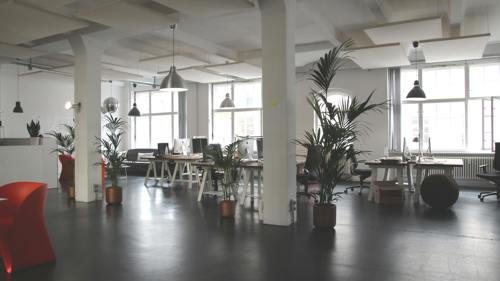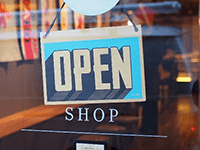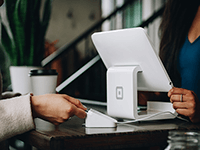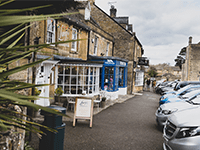
Are you considering buying or remortgaging a business property for your own use? An owner-occupied commercial mortgage might be just what you need.
In this guide, we'll break down what this is, how it works, and when you might need one.
What is an owner-occupied commercial mortgage?
It is a type of commercial mortgage, which is used to buy or remortgage a business property that you will use for your own operations. You cannot use this loan to buy a property to rent out to others.
It works like a residential mortgage where you borrow money from a lender and make monthly payments back towards it.
This mortgage can be used for different types of properties, such as warehouses, offices, shops, salons, garages, and more.
When might I need an owner-occupied commercial mortgage?
You might need this type of mortgage in situations where you:
- Have a new business and need a place to run your operations.
- Are renting a business property but want to buy your own to get more control.
- Have recently grown your business and need a larger space for all your employees.
- Want to remortgage your property to get a better deal or because your current terms have ended.
What types of owner-occupied commercial mortgages are there?
There are different types of mortgages available, each with its own risks and benefits. Understanding these options can help you choose the one that best suits your needs. Here's an overview of the main types:
Interest only
With an interest-only commercial mortgage, you only pay the interest on the loan each month. The amount you borrowed (the principal) stays the same during this period. This means your monthly payments are lower, giving you more cash for other business expenses or investments. However, at the end of the interest-only period, you still owe the full amount you borrowed. It’s important to have a plan for paying this off, whether through refinancing, selling the property, or another method.
Capital repayment:
With a capital repayment mortgage, your monthly payments cover both the interest and the amount you borrowed (the principal). This means that over time, you owe less and eventually pay off the loan completely by the end of the term. Each payment reduces your debt, so you will own the property outright at the end. This can give you peace of mind. However, monthly payments are usually higher than with an interest-only mortgage because you are paying down both the principal and the interest.
How do I get an owner-occupied commercial mortgage?
Before applying for a product, take some time to figure out what you need. Make sure you can comfortably afford the repayments without stretching your budget too thin. Also, think about any changes you might want to make to the property, as this could affect how much you need to borrow.
When you know your needs, start looking at different mortgage options and compare them. Don’t just go with the first one you see. Research various providers to find the best deal. Using a broker can be helpful since they have access to multiple lenders and can compare different solutions on your behalf. Keep in mind, though, that brokers may charge fees, potentially making this approach more costly than dealing directly with a lender.
After choosing a provider, whether directly or through a broker, apply for the mortgage. Be ready to provide the necessary documents to the lender. Having your paperwork organised in advance will help speed up the process.
Once the lender approves your loan and completes any required legal steps, you’ll receive the funds.
How long does an application take to complete?
The time required to complete an application can vary depending on the lender, the speed at which you provide the necessary documents and the complexity of the transaction. If you can submit the required documentation quickly, the process will be much faster. Generally, it can take anywhere from a few weeks to a couple of months.
What are the owner-occupied commercial mortgage rates like?
Interest rates can vary based on several factors, including your lender, the current market, and the base rate. Additionally, your personal situation, such as your credit history, income, and deposit also plays a role.
Lenders will also look at how your business is doing to determine how much of a risk it is lending to you. If there are uncertainties, it can make it harder to get your application approved.
In general, if you are seen as a lower risk due to a strong personal and business position, you are more likely to qualify for a lower interest rate. However, if you are considered a higher risk, you might face a higher interest rate.
What are the costs involved in getting an owner-occupied commercial mortgage?
Some of the costs may include:
- Arrangement or product fees: Lenders may charge a fee to set up the mortgage. This may be a set amount or a percentage of the loan.
- Valuation fees: You’ll need to pay for a property valuation to determine its worth. This helps the lender decide how much they can loan you.
- Legal costs: These are fees for legal services needed to complete the purchase or remortgage, such as drafting and reviewing documents.
- Broker fees: If you use a mortgage broker, they might charge a fee for their help. This could be a flat fee or a percentage of the loan.
- Insurance: You’ll likely need insurance to protect the property from damage and other risks. This is important for safeguarding your investment.
- Stamp duty: If the property price is above a certain amount, you may need to pay stamp duty. This tax depends on the property's value and location.
- Mortgage costs: This includes the monthly payments you need to repay towards the loan, which may include interest.
What is the difference between investment property and owner-occupied property?
An investment property is bought to rent out to tenants. The main goal with this property type is to generate rental income, and it often can form part of your overall portfolio.
On the other hand, an owner-occupied property is used for your own business. You run your business directly from this property, rather than renting it out to others.
Summary
An owner-occupied commercial mortgage can be a valuable tool if you're looking to buy or remortgage a business property that you will use for your own operations. By understanding how these mortgages work and exploring the available options, you can make a well-informed decision. So, whether you’re starting a new business, moving from a rental, expanding, or looking for a better deal, an owner-occupied commercial mortgage may be able to help.
Any property used as security, which may include your home, may be repossessed if you do not keep up repayments on your mortgage.




